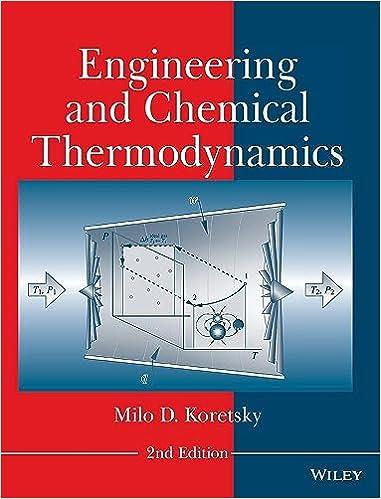Hydrogen gas is a promising alternative source for energy. You want to produce H2 by passing water
Question:
Hydrogen gas is a promising alternative source for energy. You want to produce H2 by passing water vapor through a bed of activated carbon at 1000 K and 50 kPa. Consider the following reaction:![]()
(a) At equilibrium, how much H2 is produced for every mol of H2O fed? You may assume carbon is present in large excess and that Δhor xn is a constant.
(b) Explain why you think that this reaction is run at 50 kPa instead of at atmospheric pressure?
(c) In solving part (a), you assumed Δhor xn = constant. What do you think is the single most important reason that this assumption might not be valid?
(d) Without redoing the detailed calculations that you did in part (a) determine the following values of K and yH2 if you write the reaction as:![]()
(e) You believe that CO2 might also form when water vapor is passed through the bed of activated carbon. How much H2 is produced for every mol of H2O fed, considering this second reaction?
Step by Step Answer:






